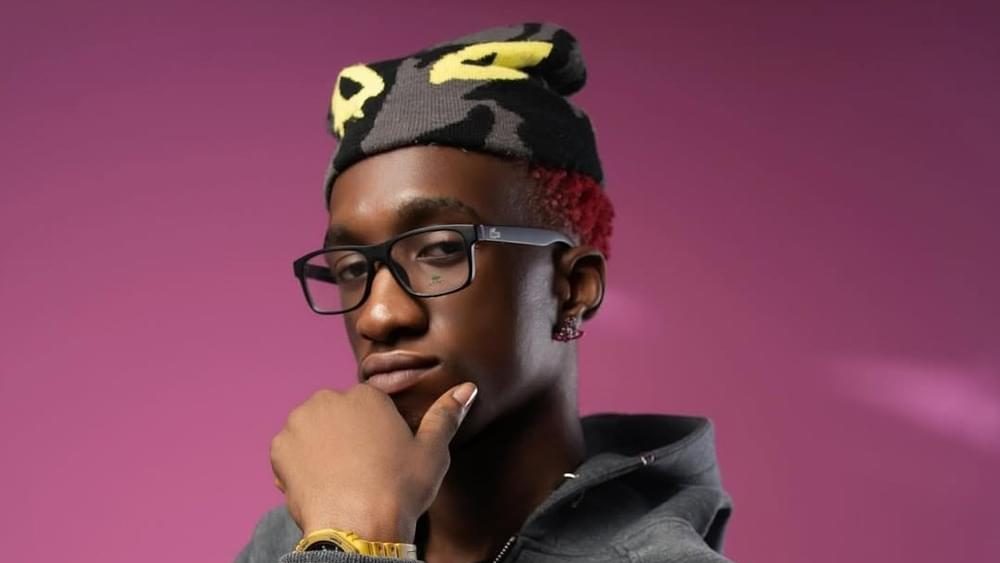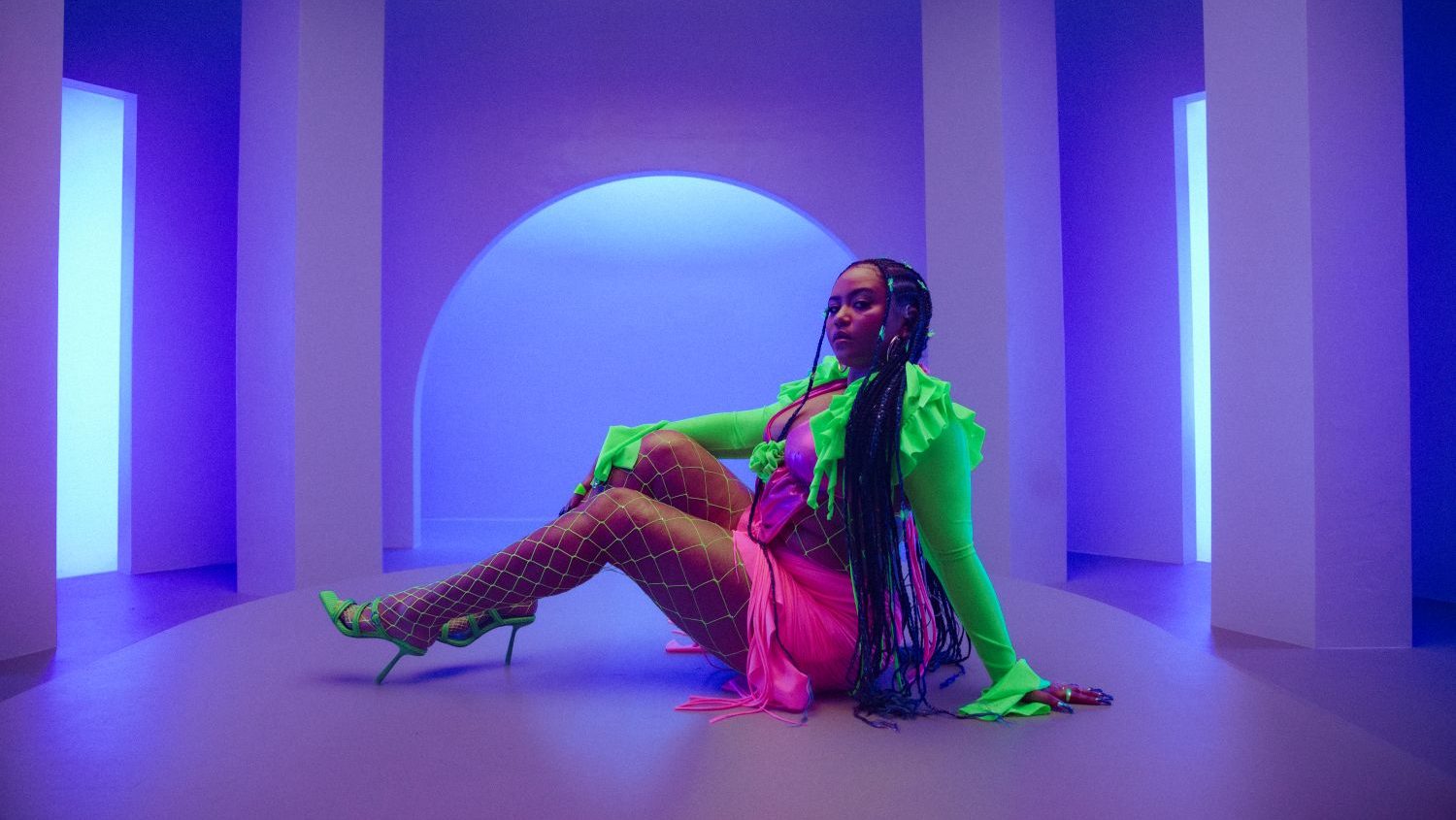Snapchat ads suck. On most days, those interruptions while trying to scroll from your friend’s meme-filled story to that one ex’s day-on-the-beach story can be annoying as hell. So, when a friend sent one to me about two weeks ago, I was confused. In my mind, I kept wondering why an individual would willfully – and of their own freaking accord – sit through an ad, replay it, and send it to others.
It was an ad for Keys The Prince’s Left Right. Disgruntled as I was, I watched it and offered her a mental apology in that instant. Left Right is a lot of things. All of which I’ll explain below.
A Mirror to Afrobeats
There are three significant moments on Left Right. The first is an interpolation of Yinka Ayefele’s 2005 smash single, Te Ota e Mo Ile, the second an interpolation of the second verse on Wizkid and Ayra Starr’s 2022 hit single, 2 Sugar, while the third occurs between 0:44 and 1:00 where he slips into a flow native to French hip-hop. The third isn’t so relevant beyond being a pointer to the globalisation of music and how certain mannerisms that belonged to select genres or movements have now diffused across the spectrum. But you see those first two? Alarmingly poignant!
17 years. That’s the distance between 2 Sugar and Ayefele’s seminal record. While the former was an undisputed nationwide hit, the latter peaked in the southwest, where a young Ayefele gradually became a household mainstay. However, the poignancy lies not in the age gap but in how both reflect the musical journey of Keys, who, like many other second-generation British Nigerians, had an upbringing of musical diversity. It’s one exhibited by NSG’s use of Area Boys, for instance, and Skepta – who just pulled off one of music’s more audacious moves with the Portable-assisted Tony Montana – making covers of peak D’Banj records. The music diffused across borders and was influential enough to inspire Keys’ record almost two decades later. In an average documentary on Afrobeats, there’s unlikely to be a reference to Yinka Ayefele; talk more of the many other regional stars of the 2000s and 2010s. But in reality, they are as Afrobeats as anyone else.
Why? Because fuji is Afrobeats. Juju is Afrobeats. The hip-hop gospel experimentations of Angel’s Opomulero and Rooftop MCs’ Lagimo are Afrobeats. In a bid to document, we often fail to realise just how much Afro-pop and Afrobeats owe to these moments and movements and make the mistake of exclusion and even graver sin of genre ‘editing’. Take Left Right, for instance, an Afroswing record on the surface that can be peeled back to reveal more: talking drums, a looped horn segment, and the ever-guilty shakers. It’s still a mix of elements found in traditional Afrobeats, and dare I say, sounds more authentic than several of the ‘New Friday’ singles churned out every week.
The best part of recognizing that is realizing Afrobeat’s dynamism. It’s still changing. Even now, it’s at a stage of growth older genres like hip-hop and rock have once gone through, where inspiration is more recent and inwardly driven. Artists are beginning to interpolate hooks and choruses of songs released in more recent years. This is not Blaqbonez sampling Paul Play Dairo’s 2005 ballad, Forever, or another attempt at channelling Fela. It’s Bloody Civillian interpolating Omah Lay’s chorus from the sybaritic (apologies if you’ve not done your masters) Bad Influence (2020) on How To Kill A Man; a subtle melodic similarity that takes time to register but can’t be unheard afterwards. It’s the sample of Vector and Good Girl LA’s Early Momo (2021) on ShowDemCamp and Shalom Dubas’ Draw Me Closer, just four months apart. Subconsciously or not, artists are tapping into the immediate past and the origins to create records, and consequently, Afrobeats is emerging into a dynamic phase. Even in terms of sonic similarity, we have records that sound like a fusion of disco and the nasal ‘emo-afro/afro-rave’ (whatever the hell those mean) championed by Rema and CKay in the last half-decade.
This raises questions about the originality and dilution of our sound. However, those questions are best answered by looking into the past. Ours isn’t the first genre to draw from within. Afterall, there’s a whole generation of Rock hits that are basically covers with a few production and writing changes, accompanied by stamps of approval on every side. It just shows that artists are listening. And while some might lose themselves internalising others, most would channel this into unique offerings.
Cause for Concern
I wish I could say there isn’t still cause for concern, but there is, and it has to do with the legality of these interpolations and samples. If you look up Obapluto on Spotify, you will get two results: one showing Shalipopi’s name alone and the other, Shallipopi and Pa Monday-Edo. As to what this has to with the preceding statement, it’s that this multiplicity is one of several conclusions to a 200 Million Naira suit filed by Pa Monday against Shalli concerning the unsanctioned use of the former’s song, Nogbaisi, on Obapluto. Despite not being the first of such copyright cases in Nigerian music, it was the first in a long time to garner attention on such a scale, leading to its emergence as the subject of many an article. You can read those here and here.
Messy as the situation was, good arguments could be made for its being essential. I’d begin with the dearth of knowledge of copyrighting laws by artists and producers alike. Despite being signed to major labels – some of them, international – these acts choose to circumvent the processes that should follow the usage of the intellectual property of others; like Tekno in 2020, and, more recently, Smada, whose October 2023 single, SMADA EH!, was a near rip-off of Hamba Wena by South African act, Deep London. In Smada’s case, the song was eventually taken down, while Tekno opted for a two-million naira compensation. Perhaps this is a symptom of the need for more structure in the industry, as many keep pointing out.
The Shallipopi-Pa/Monday Edo situation was also essential for highlighting some of the issues faced by older Nigerian artists with the Copyrights Act. As this Mondaq article best puts it, according to the Nigerian Copyrights Act, songs have two components: the composition, which includes lyrics and melody, and the sound recording, also known as the Master. “The composition usually belongs to a songwriter or publisher, while the sound recording belongs to a recording artist or record label. In some cases, both the composition and sound recording may belong to the same person. Sampling, therefore, raises potential legal issues because these components fall under the categories protected by copyright, as highlighted above”. Often, neither the composition nor the sound recording belongs to the artist due to the nature of their record deal. This then leaves them in an unfortunate position to sue or complain and could be responsible for the unusual silence on quite a number of interpolations and samples of songs from the 70s and 80s. Many record companies involved in those times have ceased to exist, and even those who have become part of existing labels are less of a priority. In some cases, like Timi Dakolo and Majek Fashek’s 2017 feud over the former’s cover of Send Down The Rain, rights to both appear to be misappropriated, resulting in the older artist getting nothing despite the supposed due process being followed.
With songs like Left Right, incorporating more recent samples, the odds of such issues arising are lower but not non-existent. Not everyone will be an Adekunle Gold, executing a beautiful – and well-cleared – sample of Baba Fryo’s Denge Pose, on Mercy, and even bringing him on board for the music video. Some might discretely sample guitar loops, drum breaks, or even chopped-and-screwed melodies that might not register until a random individual does a sample breakdown decades later. Thankfully, Left Right is none of that, as evidenced by Yinka Ayefele’s seeming seal of assent.
Refresher on TikTok’s Relevance
Before Left Right, Keys had only one video of his cross the 300k mark for Tik Tok views, which was for his COLORS collaboration, OSHEY. Post-Left Right, he has had six videos cross that mark, with a peak of 517.7k, as of the time of writing this article. As a sound, it’s been used in even more videos, many of which have crossed over to Twitter and Instagram, proving – once again – the power of TikTok.
Seeing as how songs like Love Nwatiti and, more recently, Reekado Banks 2016 hit, Problem, have witnessed resurgences due to TikTok – years after their initial release – it’s not farfetched to consider a similar scenario with older Nigerian hits. In the US, which our industry mirrors, several of these resurgences have been fueled by the app. African classics like VIP’s Ahomka Womu and Premier Gaou have also experienced returns to mainstream consciousness due to TikTok. So, what’s to say it could not happen in Nigeria?
Of course, this would require a great deal of intentionality on the part of industry actors. It would also require artists and labels alike to look past controversies and arrive at a compromise. Imagine a trend with the chorus of PSquare’s No One Like You used for wedding edits or Artquake’s Alanta making a comeback, which would fit right in with the dance-centric nature of the app. It’s a potential goldmine sitting right in front of our faces. And if anything, it’s coming at a time when the industry is structured well enough to execute such campaigns.
We can either learn from moments like this and work towards crafting organic resurgences and, potentially, new avenues of income for labels and artists alike, or we can focus on shelving these records altogether, while Keys tọ̀tá ẹ mọ́lẹ̀‘s his way into more hearts; in which case, our pockets – and not time – would be the judge.




